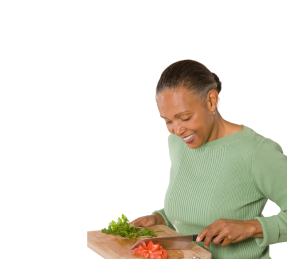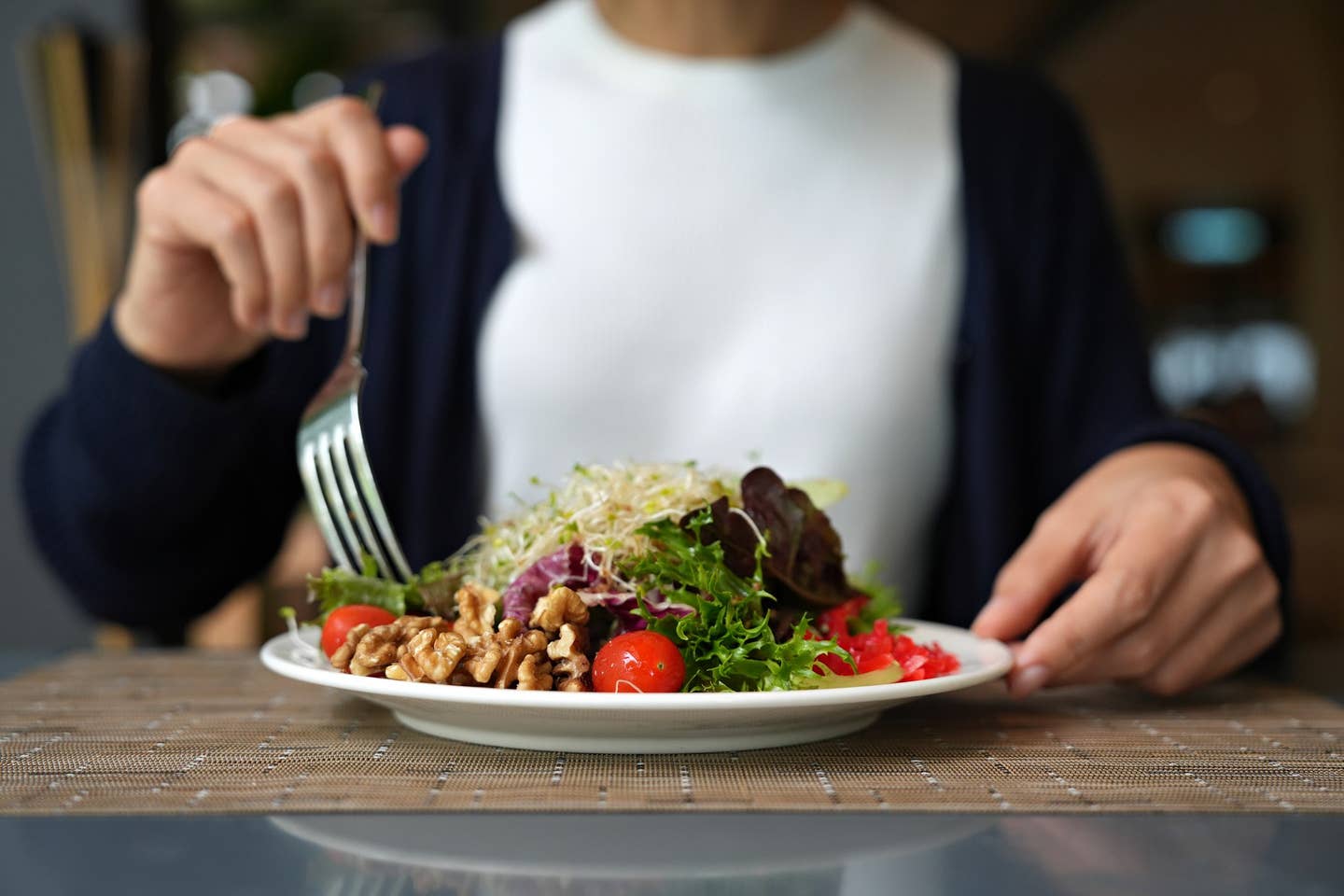The following is an excerpt from Proteinaholic, which was released by HarperOne.
Can you believe people actually avoid fruit in an attempt to lose weight? There has never been a single credible study showing that fruit consumption leads to weight gain, and yet this concept is as prevalent as any nutrition dogma. I have treated people for obesity for years and I can tell you, nobody is coming to see me because they ate too many apples or grapes. Why do people think fruit leads to weight gain? The quick answer from my patients is because of the carbs.
When I ask my patients what their downfall is, when it comes to weight loss, they unanimously blame carbs. Their diet log will read: eggs-and-bacon breakfast sandwich, Subway sandwich and chips for lunch, and a pork roast with potatoes for dinner. When asked the part of that menu that is causing them to gain weight, they blame the bread from the sandwiches, the chips, and the potatoes. It is always the bun, never the hamburger. Now don’t get me wrong; there is nothing healthy about chips, loaded with fat. The sandwich bread is likely bleached flour with little, to no, nutrient value.
However, the vast majority of the calories are coming from fat and protein. Pizza and donuts are considered carbs despite the fact that they contain as many (or more) calories from fat as carbs.
Here are two examples. The first is for a Pizza Hut six-inch Personal Pan Meat Lover’s Pizza (admittedly one of their more calorically dense and fat-heavy options). Of the 850 total calories, 430 come from fat. That’s 51 percent. Another hundred calories come from protein, leaving 320 calories from carbs.
Second, a Krispy Kreme Original Glazed Donut. According to the company’s website (updated September 2014), a single donut delivers 190 calories, 100 of them from fat. That’s 53 percent. Carbs account for 84 calories (44%), while protein comprises another 6 calories (3%).
Widespread Misconceptions About Protein, Carbs, and Fat
Here’s a recent conversation with a patient, a woman from Ghana, that really highlights the misconceptions about diet and weight loss. She has lived in the United States for many years, and during much of that time, struggled mightily with obesity. She has seen endocrinologists, dietitians, and trainers. She has done the Atkins diet several times and most recently went to a doctor who prescribed Belviq (the newest prescription medication targeting obesity). She sees a registered dietitian and a trainer regularly. Despite the meds, the medical oversight, and her sincere and steadfast efforts, she still has a body mass index (BMI) of 40, which classifies her as morbidly obese.
And as you’ll see, she already knows everything she needs to make smarter decisions. It’s only the proteinaholism that blinds her to the truth:
ME: So what do you typically eat for breakfast?
PATIENT: Usually eggs of some sort and a protein.
ME: What do you mean by “protein”?
PATIENT: Well, it could be chicken or bacon or sausage.
ME: Hmm, those aren’t really protein. I mean, some of those choices have more calories from fat than protein. So really, you could just as well say, “I have eggs and some fat for breakfast.”
PATIENT: (Chuckles) Never thought about it like that.
ME: So what’s for lunch?
PATIENT: Usually salad with a pro-um,
I mean fish or chicken.
ME: OK, do you snack during the day?
PATIENT: No. My issues really are at night, when we eat more carbs from our traditional diet from Ghana. We eat lots of yams and stews. Lots of starches.
ME: Interesting that you view that as your bad meal when to me it’s your best. Have you visited Ghana recently?
PATIENT: Yes. Funny enough, whenever I visit Ghana I lose weight. That is the only place I lose weight.
ME: What do you eat there?
PATIENT: Lots of yams, yam stews, lots of maize (corn), fruit.
ME: Are there lots of obese people in Ghana?
PATIENT: Not at all. In fact, when I am there I am one of the biggest.
ME: So do you see what I’m getting at? In Ghana you eat lots of starches and fruits, and people are thin and you lose weight. But come to America and eat American “health food,” and you gain weight. As I look at your diet history, you have always tried diets that focus on high protein. You told me you try to eat lots of protein and it has never worked long for you. Yet you have completely avoided a diet that you enjoy and have lost weight on.
PATIENT: Well, I thought fruits and starches made you fat, and we need more protein. That is all I hear.
In Ghana, the obesity rate is 5.5 percent, slightly higher for women (7.9%) and slightly lower for men (2.8%), compared to America’s 34.9 percent rate of obesity. Higher rates of obesity were found among those who live in the more Westernized portions of Ghana and eat less fruit. Also, those who had not completed a secondary school education were much less likely to become obese than those who graduated from secondary school, high school, and college. This suggests that with higher earning power came the ability to buy meat and other rich Western fare. The Ghanian traditional diet was the one most closely correlated with normal weight and is high in beans and starches, including maize, yams, fruits, and cassava roots (Biritwum, Gyapong, et al. 2005)[1].
Traditional diets high in fruits, veggies and starches have worked for thousands of years, and continue to keep people slim and healthy. But our obsession with counting fat, carbs, and protein blinds us to this truth.
[1] Biritwum, R., Gyapong, J., & Mensah, G. (2005). The epidemiology of obesity in Ghana. Ghana Med J, 39(3), 82–85.
Related News
Try Our Top-RatedMeal Planner Free

Forks Meal Planner takes the hard work out of making nutritious meals the whole family will enjoy.
SAVE $200 ON OUR ULTIMATE COURSE

Join our best-selling course at a new lower price!





